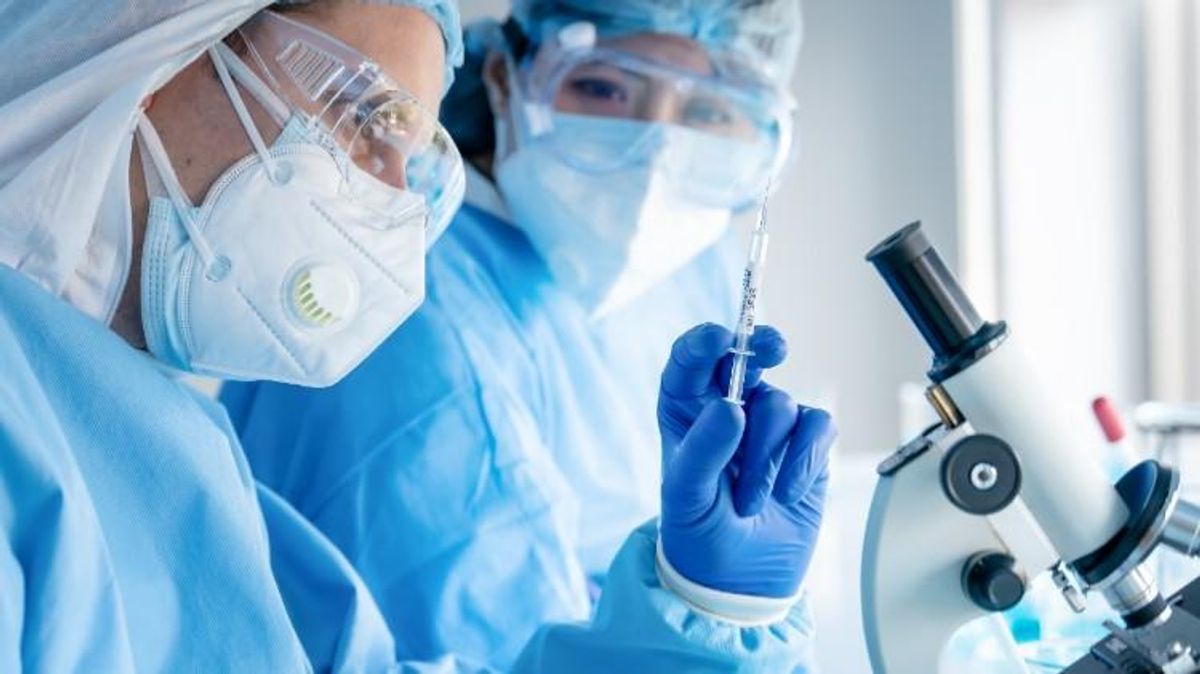Certain experimental COVID-19 vaccines could lead to an increased risk of HIV infection, especially among already vulnerable populations, a group of researchers says.
Some COVID vaccines in development are built around an adenovirus, a type of virus that can cause the common cold but usually has no ill effects, and a smaller number use adenovirus 5 (Ad5), which was linked to a higher vulnerability to HIV.
Four researchers released a statement, published Tuesday in The Lancet, saying that when they tested an HIV vaccine built around Ad5 in international trials over a decade ago, they found that some men who had already been exposed to Ad5 had an increased risk of HIV acquisition. Uncircumcised men who had unprotected insertive anal sex were especially vulnerable, they said. There was also increased risk among what they described as "heterosexual men," which implies the men were having vaginal sex, although the researchers did not state this. An increased risk was not noted in women.
The researchers, who include the Fred Hutchinson Cancer Research Center's Lawrence Corey, a co-leader of the COVID-19 prevention network in the U.S., said they came forward with this information because they’re afraid Ad5 vaccines could soon be tested on populations with already high HIV rates. “If I were in a sub-Saharan African country and making a decision as to what I would want for my country for a general population use of a SARS-CoV-2 vaccine, I don’t see why I would pick an Ad5 vector [vaccine] when there are many other alternative choices,” Corey told Science.
The Ad5-based vaccine that has been developed the furthest is from CanSino Biologics, based in China. In May, researchers from the company said they were aware of the “controversial” possibility that Ad5 could increase risk of HIV infection but were going to press forward with trials in Russia and Pakistan. The company previously made an Ebola vaccine using Ad5 that officials say has shown no connection to increased HIV risk, and pointed to a vaccine test done in Sierra Leone, where there’s a relatively high prevalence of HIV, but no increase was found.
The Gamaleya Research Institute from Russia also has a COVID vaccine candidate that uses Ad5 vectors and is currently testing it in Russia. ImmunityBio, a U.S.-based company, recently got approval from the Food and Drug Administration to begin human trials of its Ad5 vector vaccine. Patrick Soon-Shiong, the company’s CEO, told Science the STEP study results were “very, very fuzzy” and said the Ad5 used in ImmunityBio's vaccine has been modified.
Several other vaccine candidates utilize different adenoviruses, and there’s no evidence that any of them lead to an increased risk of HIV.















































































